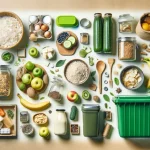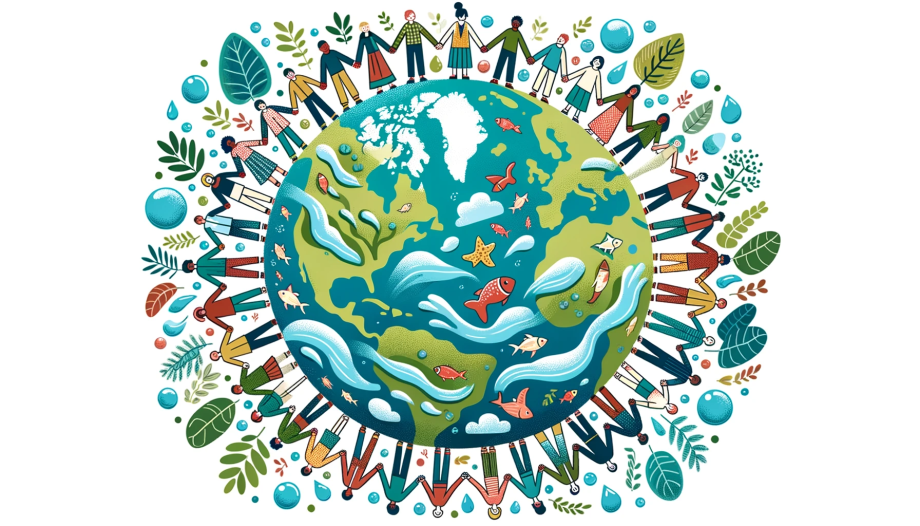 Dive into mastering zero-waste living with us! Get practical tips, DIY ideas, and inspiration to reduce waste and live sustainably. Start your eco-journey today!
Dive into mastering zero-waste living with us! Get practical tips, DIY ideas, and inspiration to reduce waste and live sustainably. Start your eco-journey today!
Mastering Zero-Waste Living
Key Takeaways:
- Mastering zero-waste living involves adopting practices that reduce waste to zero by reusing, recycling, and composting.
- It focuses on minimizing environmental impact through mindful consumption, sustainable choices, and supporting eco-friendly products.
- Start with small changes at home for a significant global impact.
Embarking on the journey of mastering zero-waste living might seem like a tall order, but guess what?
It’s absolutely achievable and, dare we say, fun! We’re here to guide you through the ins and outs, offering simple steps, savvy swaps, and a sprinkle of creativity.
Let’s make sustainability the new normal together.
Introduction to Zero-Waste Living
Embarking on a zero-waste lifestyle is about embracing a journey towards sustainability. It’s a commitment to reducing our environmental footprint by minimizing waste and repurposing what we can.
This introduction will guide you through the basics of zero-waste living, offering insights and steps to create a more sustainable daily routine.
Definition and Overview of Zero-Waste
Zero-waste living is about reducing what we throw away to help our planet.
It’s a lifestyle choice where we aim to reuse what we can and recycle, and compost the rest.
The idea is simple: if we can’t reuse it, we probably don’t need it. This approach helps us rethink our daily habits and make more sustainable choices.
Zero waste, or waste minimization, is a set of principles focused on waste prevention that encourages redesigning resource life cycles so that all products are repurposed (i.e. “up-cycled”) and/or reused. The goal of the movement is to avoid sending trash to landfills, incinerators, oceans, or any other part of the environment. Currently 9% of global plastic is recycled.[1] In a zero waste system, all materials are reused until the optimum level of consumption is reached. Wikipedia
The Environmental Benefits of Zero-Waste
Choosing a zero-waste lifestyle has a big impact on our planet.
It helps reduce pollution from waste disposal, conserves natural resources, and reduces greenhouse gas emissions from decomposing waste.
Plus, it promotes a more sustainable way of living that can actually save money in the long run.
By focusing on reducing our waste, we’re taking a step towards combating climate change and preserving our planet for future generations.
The Point of Zero-Waste: Why It Matters
Going zero-waste matters more now than ever. With climate change threatening our environment, small changes in our daily lives can make a big difference.
Zero-waste living isn’t just about reducing waste; it’s about changing our mindset towards consumption.
It challenges us to think about how we can minimize our impact on the earth by making better choices, like saying no to plastic bags and single-use plastics, and yes to reusable products.
This lifestyle shift can lead to a more sustainable world and a better future for all.
The How-To’s of Zero-Waste Living
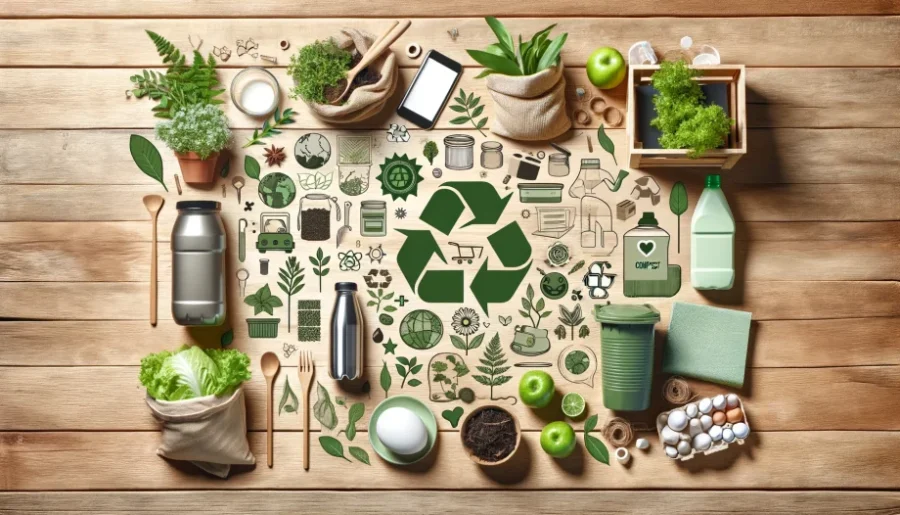
Diving into the how-to’s of zero-waste living means exploring practical steps to drastically reduce waste.
This section is your toolkit for sustainable living, offering actionable tips and simple swaps that can significantly lower your environmental impact.
From kitchen hacks to shopping habits, get ready to transform your approach to daily life.
How to Go Zero-Waste: A Step-by-Step Guide
Embarking on a zero-waste journey starts with small, manageable steps.
First, assess the amount of waste you currently produce and identify areas for improvement.
Start by refusing what you don’t need, reducing what you do use, reusing what you can, recycling wisely, and composting food scraps.
This approach helps lessen the amount of waste going to landfills and reduces your carbon footprint.
Practical Tips for Reducing Household Waste
One of the easiest ways to reduce household waste is by focusing on your shopping habits.
Opt for products with minimal packaging, bring your own reusable bags, and choose fresh food over packaged goods.
Small changes like using cloth bags instead of plastic bags for produce can significantly reduce plastic waste.
Also, consider meal planning to minimize food waste and save money.
Table: Practical Tips for Reducing Household Waste
| Area | Tips |
|---|---|
| Kitchen | Use beeswax wraps, buy in bulk, and prefer compostable materials. |
| Bathroom | Switch to bar soaps/shampoos and bamboo toothbrushes. |
| Shopping | Bring your own bags, containers, and bottles; choose items with minimal to no packaging. |
| Cleaning | Make homemade cleaning solutions from vinegar, baking soda, etc. |
Zero-Waste Kitchen Essentials
Creating a zero-waste kitchen starts with swapping out disposables for reusable alternatives. Invest in a good set of reusable containers, glass jars for bulk storage, and beeswax wraps for covering food.
A reusable water bottle and coffee cup can also cut down on a surprising amount of waste.
Stocking your kitchen with these essentials makes it easier to avoid single-use plastics and packaging.
Table: Zero-Waste Kitchen Essentials
| Item | Use |
|---|---|
| Glass Jars | Storing bulk foods, leftovers, or as drinking glasses. |
| Compost Bin | Collecting food scraps for compost. |
| Reusable Bottles | Eliminating the need for disposable water bottles. |
| Cloth Napkins | Replacing paper towels and napkins to reduce waste. |
DIY Compost Bins for Small Spaces
Composting is a great way to handle organic waste, but not everyone has a large yard. Learn about composting in small spaces.
Fortunately, you can easily make a compost bin for a small space. Use a container with a lid, add a mix of green (food scraps) and brown (dry leaves or paper) materials, and turn regularly.
This process turns waste into nutrient-rich compost for plants, reducing the need for chemical fertilizers.
Eco-Friendly Personal Care Products
Switching to eco-friendly personal care products reduces a significant amount of plastic waste.
Look for items like bamboo toothbrushes, bar shampoos and conditioners, and reusable razors.
Many of these products not only cut down on waste but are often made with natural ingredients, better for both you and the environment.
Bulk Buying: Zero-Waste Shopping Guide
Shopping in bulk is a cornerstone of the zero-waste movement.
It reduces packaging waste and allows you to buy exactly what you need, decreasing food waste.
Bring your own containers to bulk stores to fill up on grains, nuts, and spices.
This practice significantly cuts down on the environmental impact of your shopping.
Eco-Friendly Cleaning Solutions

Making your own cleaning products is not only better for the environment but also for your health and wallet.
Discover eco-friendly cleaning solutions that are kind to the planet and your home.
Simple ingredients like vinegar, baking soda, and lemon can clean most of your home.
These natural products work well, avoid the harsh chemicals found in many store-bought cleaners, and reduce the need for multiple plastic bottles.
Zero-Waste Principles
Core Principles of Zero-Waste
The zero-waste movement is built on five core principles: refuse, reduce, reuse, recycle, and rot.
Refusing what we don’t need prevents waste from being created in the first place.
Reducing what we do need by choosing more sustainable options lowers our overall consumption.
Reusing involves finding new ways to use things instead of throwing them away.
Recycling should be considered when an item can no longer be reused, and rot refers to composting organic matter, returning nutrients back to the earth.
These core zero-waste principles serve as a guide for designing a lifestyle that significantly reduces waste.
Table: Core Principles of Zero-Waste
| Principle | Description |
|---|---|
| Refuse | Avoiding unnecessary items and saying no to single-use plastics and junk mail. |
| Reduce | Minimizing waste by choosing products that are designed to last longer and have less packaging. |
| Reuse | Opting for reusable options over disposable ones whenever possible. |
| Recycle | Properly sorting and recycling items that cannot be refused, reduced, or reused. |
| Rot | Composting organic waste to return nutrients back to the earth. |
Designing a Zero-Waste Lifestyle Around These Principles
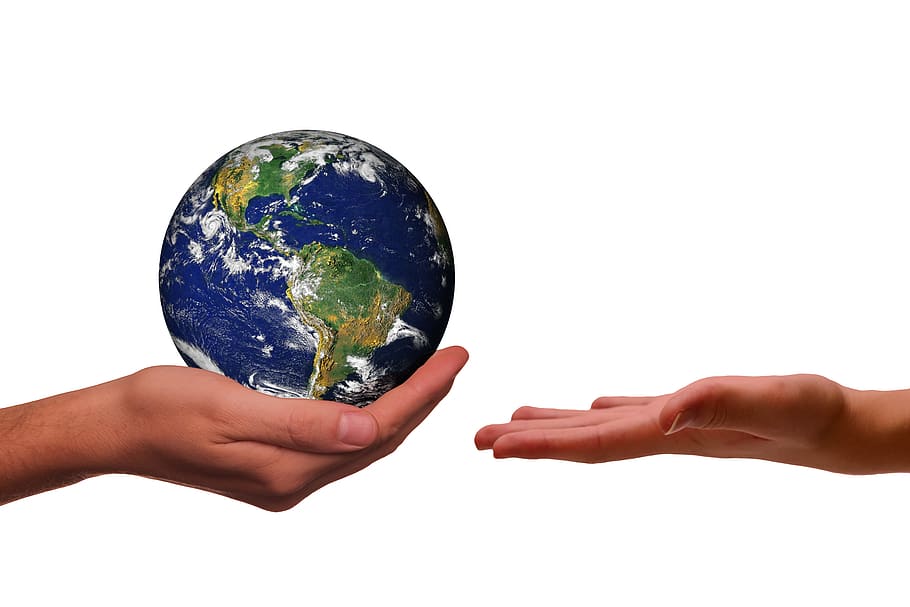
Designing a zero-waste lifestyle around these core principles starts with a mindset shift.
Begin by assessing your daily routines and identifying areas where you can apply the principles of refuse, reduce, reuse, recycle, and rot.
For example, bringing your own reusable produce bags and containers to the grocery store addresses several principles at once.
The goal is to create a lifestyle that seamlessly incorporates these practices into your everyday life, reducing your environmental impact.
Minimizing Food Waste: Smart Tips
Food waste is a significant issue, contributing to climate change and resource depletion.
To minimize food waste, start by planning your meals and shopping with a list to avoid buying more than you need.
Store food properly to extend its freshness, and get creative with leftovers to ensure that nothing goes to waste.
Composting food scraps is another effective way to reduce waste and enrich the soil.
Sustainable Textiles for Home Use
Choosing sustainable textiles for your home is a great way to support the zero-waste movement.
Look for materials like organic cotton, bamboo, and hemp, which have a lower environmental impact than conventional textiles.
Additionally, consider buying second-hand items or choosing high-quality products that will last longer, reducing the need to replace them frequently.
Recycling Electronics Responsibly
Electronic waste is a growing problem, with millions of devices ending up in landfills each year.
To recycle electronics responsibly, look for certified e-waste recycling centers or manufacturer take-back programs.
These options ensure that valuable raw materials are recovered and that hazardous substances are properly handled.
Zero-Waste Packing and Travel Tips
Traveling zero-waste requires a bit of planning but is entirely feasible. Pack light, and bring your own reusable items, such as water bottles, utensils, and toiletry containers.
Choose digital tickets and boarding passes to reduce paper waste and opt for accommodations committed to sustainability. These practices help minimize your environmental footprint while exploring the world.
Implementing Zero-Waste in Daily Life
Incorporating zero-waste practices into our daily lives is a powerful way to reduce our environmental footprint.
This section explores various areas of everyday living where we can apply zero-waste principles, from pet care and cooking to crafting and gardening.
By adopting these practices, we not only contribute to a healthier planet but also often find more meaningful and connected ways of living.
Table: Implementing Zero-Waste in Daily Life
| Practice | Description |
|---|---|
| Pet Care | Use biodegradable bags for waste and eco-friendly toys. |
| Meal Planning | Plan meals to avoid food waste and shop with a list to buy only what you need. |
| Gardening | Start a compost for organic waste and choose native plants that require less water. |
| Water Conservation | Install low-flow fixtures and collect rainwater for use in gardening. |
Zero-Waste Pet Care Practices

Caring for pets while maintaining a zero-waste lifestyle is entirely possible.
Start by choosing eco-friendly pet products, such as biodegradable waste bags and natural grooming products.
Consider making your own pet food or treats from scratch to avoid packaging waste and control the quality of ingredients.
Also, look for toys and accessories made from sustainable materials, or repurpose household items into fun toys for your furry friends.
Plant-Based Zero-Waste Recipes

Embracing plant-based cooking is a fantastic way to reduce waste and support a zero-waste lifestyle.
Focus on recipes that utilize whole ingredients and minimize packaging.
Explore bulk buying for grains, nuts, and legumes, and use reusable produce bags for fruits and vegetables.
Getting creative with leftovers and using all parts of your produce can significantly cut down on food waste, making your meals both delicious and sustainable.
Upcycling Projects for Beginners
Upcycling is a creative and fun way to give old items new life. Beginners can start with simple projects like transforming jars into storage containers or crafting old t-shirts into reusable shopping bags.
Upcycling not only reduces waste but also allows you to express your creativity and personalize your space with unique items that tell a story.
Reducing Paper Waste at Home
Paper waste is a significant part of household waste that can be easily reduced.
Opt for digital subscriptions and billing to cut down on paper use. If printing is necessary, use both sides of the paper.
Embrace reusable options like cloth napkins and towels over paper products, and recycle paper products properly to ensure they get a second life.
Sustainable Gardening and Composting

Sustainable gardening is a rewarding way to grow your own food while contributing to a zero-waste lifestyle.
Use compost to enrich your soil, reducing the need for chemical fertilizers.
Collect rainwater for irrigation, and choose native plants that require less water and care.
Starting a compost bin turns kitchen scraps and yard waste into valuable compost, closing the loop on organic waste.
Water Conservation in a Zero-Waste Home
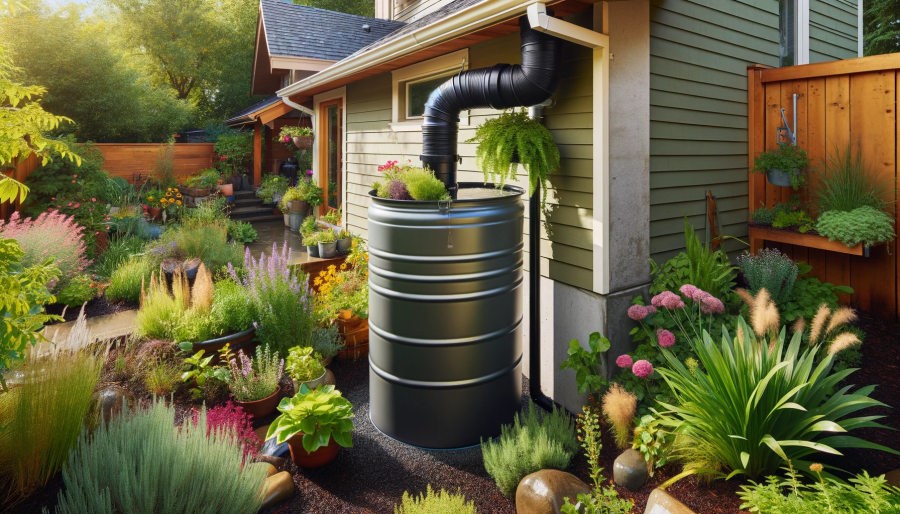
Water conservation is an essential aspect of zero-waste living.
Simple practices like fixing leaks, installing low-flow fixtures, and using greywater systems can significantly reduce water usage.
Collecting rainwater for garden use and choosing drought-resistant plants are also effective strategies.
Every drop saved contributes to a more sustainable and zero-waste home.
Beyond the Home: Extending Zero-Waste Principles
Taking zero-waste principles beyond the home allows us to amplify our positive environmental impact in the community and wider world.
This section explores how we can incorporate sustainability into aspects of life such as gift-giving, fashion, meal planning, and even in our workplaces or schools. By extending these habits, we encourage others to consider their environmental footprint, creating a ripple effect of sustainable practices.
Eco-Friendly Gift Giving Ideas
Gift-giving is a beautiful way to show love and appreciation, and it can also be done sustainably.
Consider gifts that offer experiences, such as tickets to an event or a class, which create memories without waste.
For tangible gifts, look for items made from sustainable materials or that support zero-waste living, like reusable water bottles or eco-friendly beauty products.
Handmade gifts add a personal touch and reduce waste even further.
Sustainable Fashion on a Budget
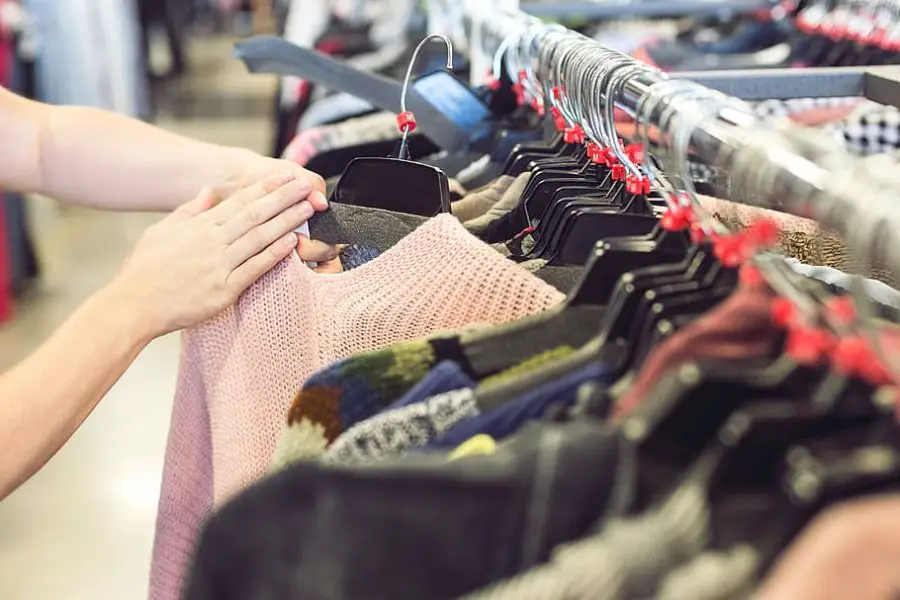
You don’t have to break the bank to keep your wardrobe eco-friendly.
Thrift shopping is a great way to find unique items and give clothes a second life.
Look for brands that prioritize sustainability in their manufacturing processes and materials.
Buying less but choosing well-made items that last longer is a cornerstone of sustainable fashion.
Organizing clothing swaps with friends is another fun and free way to refresh your wardrobe without waste.
Zero-Waste Meal Planning
Meal planning is an effective strategy to reduce food waste and save money.
By planning your meals, you can buy only what you need, minimizing excess food that might end up in the trash.
Focus on plant-based recipes that use whole, unpackaged ingredients, and remember to bring your own containers to bulk stores.
Meal planning around seasonal produce also supports local farmers and reduces the carbon footprint associated with food transport.
Eco-Friendly Office and School Supplies
The workplace and schools are significant sources of waste but also offer ample opportunities for implementing zero-waste practices.
Advocate for using digital documents to reduce paper use. Invest in durable, reusable office and school supplies like refillable pens, notebooks made from recycled paper, and bamboo desktop organizers.
Encouraging a culture of sustainability in these environments can lead to broader changes in organizational practices.
Reusable Products to Replace Disposables
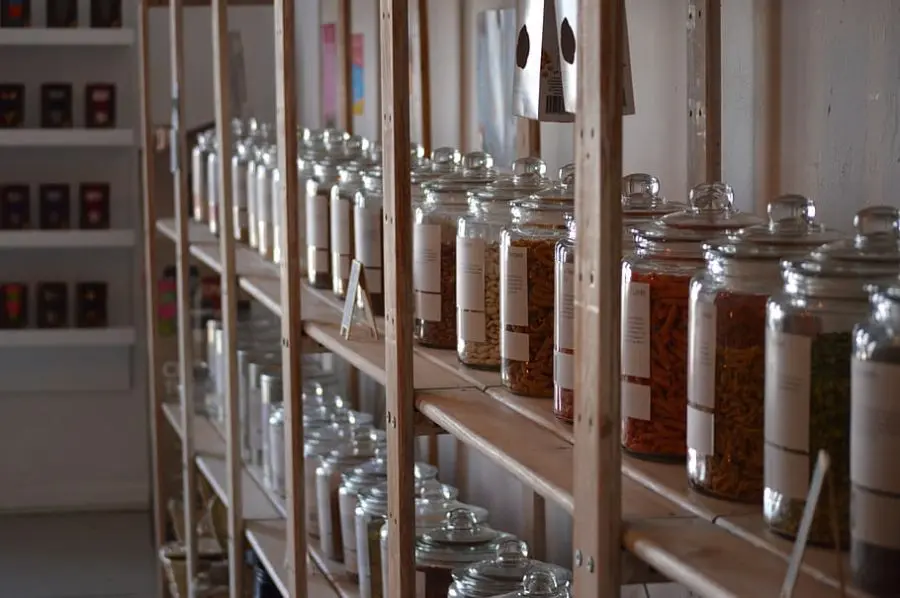
One of the most straightforward steps to reduce waste is to replace disposable items with reusable alternatives.
From bamboo cutlery sets and cloth napkins to silicone baking mats and glass storage containers, there are reusable options for almost every disposable product.
Not only do these swaps save money in the long run, but they also significantly reduce the amount of waste each individual contributes to landfills, moving us closer to a zero-waste lifestyle.
Supporting Zero-Waste Globally
Adopting a zero-waste lifestyle extends beyond individual or household efforts; it involves supporting systemic changes and initiatives that promote sustainability on a global scale.
This section highlights ways to support zero-waste through the power of commerce, community action, and advocacy.
By engaging in these broader efforts, we can help drive the significant environmental change needed to protect our planet for future generations.
What Companies Are Zero-Waste: Supporting Sustainable Businesses
Supporting businesses that are committed to zero-waste practices is a powerful way to promote sustainability.
Look for companies that use minimal packaging, prioritize recycled materials, and implement take-back or recycling programs for their products.
Many businesses also actively reduce their carbon footprint by investing in renewable energy and sustainable supply chains.
By choosing to spend your money on these companies, you’re not only getting the products you need but also contributing to a more sustainable economy.
Here is a list of zero-waste companies:
- AXIOLOGY
- Battle Green
- Bee You Organics
- EarthHero
- EcoRoots
- Elate Cosmetics
- EmpireSquid Organics
- Etee
- Ethique
- Fat and the Moon
- ILIA
- Izzy Zero Waste Beauty
- Kjaer Weis
- Life Without Plastic
- Meow Meow Tweet
- Package Free
- Patagonia
- Plaine Products
- Subaru
- Unilever
- Zero Co
- Zero waste store
- Zerowastestore
Community Initiatives and Social Sustainability
Community initiatives play a crucial role in the zero-waste movement.
Participating in or organizing local clean-up events, community gardens, and zero-waste workshops can have a substantial impact.
These initiatives not only improve the local environment but also strengthen community ties and promote social sustainability.
Engaging with your community to implement zero-waste practices can inspire others to take action, creating a collective force for environmental stewardship.
Advocating for Zero-Waste Policies and Infrastructure
One of the most effective ways to support zero-waste globally is through advocacy for policies and infrastructure that facilitate sustainable living.
This can include lobbying for the banning of single-use plastics, supporting legislation that promotes recycling and composting, and advocating for urban planning that includes green spaces and accessible public transport.
Getting involved in political activism or supporting environmental organizations can help bring about the systemic changes needed to transition to a more sustainable, zero-waste society.
Conclusion
Embracing a zero-waste lifestyle is a journey that offers both challenges and opportunities.
As we look toward the future, it’s clear that the choices we make today will shape the world for generations to come.
This concluding section reflects on the path ahead, emphasizing the importance of personal and community action, and provides resources for those seeking to deepen their commitment to a sustainable, zero-waste future.
The Future of Zero-Waste: Challenges and Opportunities
The zero-waste movement continues to gain momentum, presenting a hopeful vision for a sustainable future.
However, challenges such as consumer culture, lack of infrastructure, and policy gaps must be addressed.
On the flip side, these challenges also present opportunities for innovation, education, and collaboration.
As more individuals and communities embrace zero-waste principles, we can collectively drive the systemic changes needed for a healthier planet.
Personal and Community Action Steps
The journey to zero waste starts with individual action but is amplified through community efforts.
Start by making small, sustainable changes in your daily routine and encourage others to do the same.
Join or organize community initiatives like clean-up drives, zero-waste workshops, and local sustainability groups.
By working together, we can create a ripple effect that leads to broader environmental change.
Staying Motivated and Informed
Maintaining a zero-waste lifestyle requires ongoing motivation and education.
Connect with like-minded individuals through online forums, social media, and local community groups to share experiences, challenges, and successes.
Participating in workshops and webinars can also offer new insights and keep you inspired.
Remember, every small action contributes to a larger impact, so celebrate your progress and continue to seek ways to improve.
Leveraging Technology and Innovation
Technology and innovation play crucial roles in advancing zero-waste goals.
From apps that help you find bulk stores to companies developing biodegradable materials, the digital age offers tools and solutions that make sustainable living more accessible.
Stay curious and open to new technologies that can facilitate your zero-waste journey.
Final Thoughts
The path to mastering zero-waste living is both personal and collective, filled with learning opportunities and the potential for significant environmental impact.
As we navigate the challenges and embrace the opportunities, we contribute to a movement that is reshaping our relationship with the planet.
By taking action, staying informed, and supporting each other, we can work towards a future where zero waste is not just an ideal, but a reality for communities around the world.
Learn more and check out our Zero Living Category
Resources
For those interested in delving deeper into zero-waste living, there’s a wealth of resources available that cater to various aspects of this sustainable lifestyle.
From practical DIYs to comprehensive guides on reducing waste, these resources can help bolster your understanding and application of zero-waste principles in daily life.
- Eartheasy Guides & Articles offer practical solutions for everyday sustainability, including eco-friendly home care tips like using white vinegar as a fabric softener and creating your own stain removers using simple ingredients like castile soap and baking soda. Read more
- Going Zero Waste provides innovative ideas for using everyday items to reduce waste, such as repurposing old shirts into produce bags or using empty glass jars for storage. The blog emphasizes the importance of creativity in waste reduction and the power of secondhand shopping as a tool for sustainability. Read more
- ZeroWaste.com highlights the collective efforts of the zero-waste movement and the initiatives aimed at reducing consumption and waste generation. It touches on the significance of community involvement and the role of businesses and individuals in advancing towards zero-waste goals. Read more
- Greenpeace Aotearoa suggests making your own toiletries and snack foods to cut down on packaging waste and emphasizes the importance of keeping informed and engaged with zero-waste policies and community actions. Collaborating with like-minded individuals and groups can amplify your impact and help integrate zero-waste practices. Read more
- What is zero waste? | World Economic Forum (weforum.org)
These links provide a wealth of information for anyone looking to learn more about zero-waste living and how to implement these practices in their own lives.
Further Resources and Reading
For those looking to dive deeper into zero-waste living, there are numerous resources available.
Books like Zero Waste Home: The Ultimate Guide to Simplifying Your Life by Reducing Your Waste by Bea Johnson are available on Amazon
The Zero Waste Lifestyle by Amy Korst offers practical advice and inspiration. Available on Amazon
Online platforms, blogs, and social media groups provide a wealth of information and support for individuals at all stages of their zero-waste journey.
By continuing to educate ourselves and engage with the zero-waste community, we can stay informed about new strategies, products, and policies that support our sustainability goals.
Each of these resources provides unique insights and practical tips for those looking to embrace a zero-waste lifestyle.
By incorporating their suggestions into your daily routine, you can make significant strides in reducing your environmental impact.
Whether it’s through DIY projects, mindful consumption, or community involvement, the journey to zero waste is enriched by the wealth of knowledge and support available in these guides and articles.







